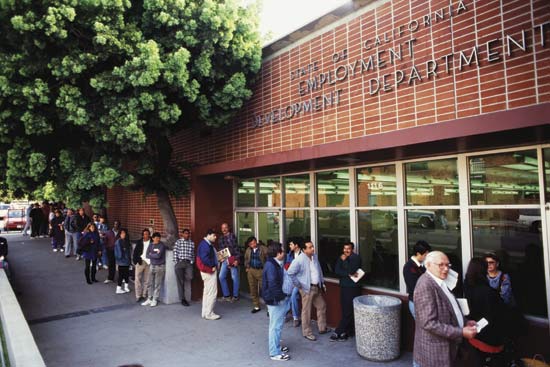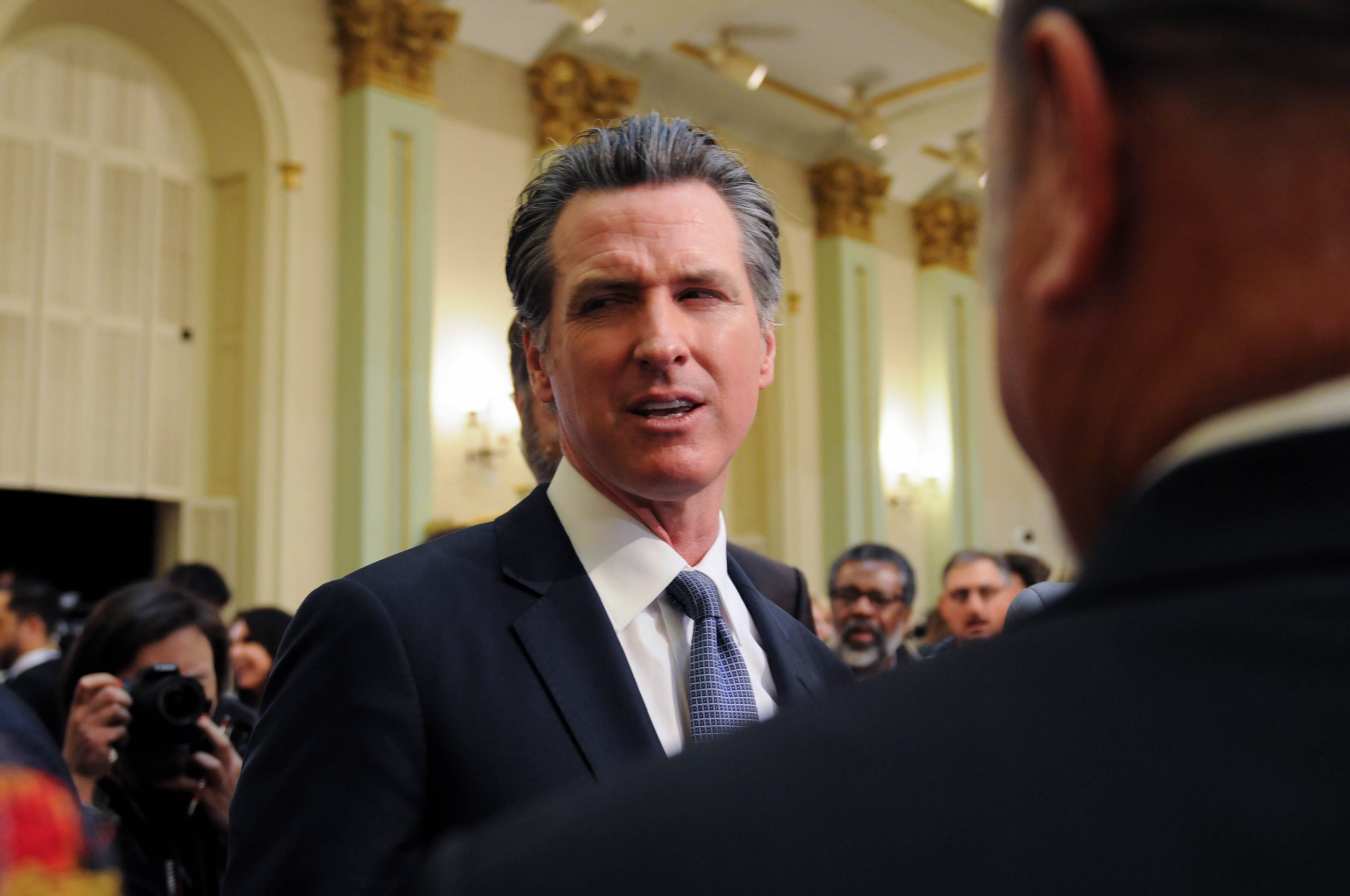
California State Capitol. (Photo: Kevin Sanders for California Globe)
Collections of Unemployment Compensation in California
Article 2 deals with the liability of successors, officers, and fiduciaries
By Chris Micheli, September 15, 2024 12:32 pm
Chapter 7 of Part 1 of Division 1 of the California Unemployment Insurance Code deals with collections. Article 1 concerns priority and lien of tax. Section 1701 provides that the wage earner and employer contributions required to be paid by any employing unit under this division, together with interest and penalties, are satisfied first in any of the four specified cases.
Section 1702 says that Section 1701 does not give the state a preference over any lien or security interest which was recorded or perfected prior to the time when the state records or files its lien.
Section 1703 states that, if any employing unit or other person fails to pay any amount imposed under this division at the time that it becomes due and payable, the amount, including penalties and interest, together with any costs, will be a perfected and enforceable state tax lien. The term “due and payable” is defined.
Article 2 deals with the liability of successors, officers, and fiduciaries. Section 1731 provides that any person or employing unit that acquires the organization, trade or business, or substantially all the assets of an employer are withhold in trust money or other property sufficient in amount or value to cover the amount of any contributions, interest and penalties due or unpaid from the employer until the employer produces a certificate from the department stating that no contributions, interest or penalties are due. If the employer does not produce the certificate, the acquiring person or employing unit must pay the amount or the value of the property so withheld to the department at the time of the acquisition.
Section 1732 requires the department, within 30 days after a request from any party, to issue a certificate, or a statement showing the amount of any contributions, interest and penalties claimed to be due. The failure to issue a certificate or a statement within the period of 30 days is deemed equivalent to the issuance of a certificate stating that no contributions, interest or penalties are due.
Section 1733 specifies that any person or employing unit that fails to withhold money or other property or fails to pay the amount or value of the property withheld is personally liable for the payment of the contributions, interest and penalties due from the employer up to but not exceeding the purchase price. The director must assess the amount to the acquiring person or employing unit and give a written notice of the assessment.
Section 1734 requires the director to have all of the remedies for collection against any person or employing unit that acquires the organization, trade or business, or substantially all the assets thereof of an employer as are provided by this division against any employer liable for contributions, interest and penalties due. The time within which the obligation may be enforced against the person or employing unit acquiring the organization, trade or business, or substantially all the assets thereof of an employer starts to run with the day the assessment against the person or employing unit becomes final.
Section 1735 states that any officer, major stockholder, or other person, having charge of the affairs of a corporate, association, registered limited liability partnership or foreign limited liability partnership, or limited liability company employing unit, who willfully fails to pay contributions required by this division or withholdings required on the date on which they become delinquent, is personally liable for the amount of the contributions, withholdings, penalties, and interest due and unpaid by the employing unit. The director may assess the officer, stockholder, or other person for the amount of the contributions, withholdings, penalties, and interest.
Section 1735.1 provides that an individual who has been assessed, or an officer, major stockholder, or other person having charge of the affairs of a business entity that has been assessed under the provisions of that section, will be personally liable for the amount of contributions, withholdings, penalties, and interest due and unpaid by the employer.
Section 1736 specifies that, in addition to other penalties prescribed in this division, failure to file the notice required will cause the assignee, receiver, trustee in bankruptcy, or other representative of an insolvent employing unit, or the administrator or executor of the estate of the deceased employing unit to be personally responsible for all loss in contributions, penalties and interest attributable to the failure.
Article 3 deals with notices of levy. Section 1755 provides that, if any person or employing unit is delinquent in the payment of any contributions, penalties, or interest provided for in this division, the director may, not later than three years after the payment became delinquent or within 10 years after the last entry of a judgment or within 10 years after the last recording or filing of a notice of state tax lien, collect the delinquency or enforce any liens by levy served either personally or by first-class mail, to any person having in their possession or under their control any credits or personal property belonging to the delinquent person or employing unit, or owing any debts to the person or employing unit at the time of the receipt of the notice of levy. This section defines the term “business day,” “deposit account,” “financial institution,” and “legal process.”
Section 1755.1 allows the department to serve notice to an address for any financial institution by means of magnetic media, electronic transmission, or other electronic technology. The term “address” is defined.
Section 1756 specifies that notices of levy to the state must be given to the state department, board, office or commission prior to the time it presents the claim of the person or employing unit to the State Controller.
Section 1757 provides that any person who fails or refuses to surrender any credits or other personal property, or pay any debts owing to the delinquent employer, up to the amount specified in the levy, will be liable in his or her own person and estate to the director in an amount equal to the value of the credits or other personal property in the amount of the debt, but not exceeding the amount specified in the notice of levy, if solely by reason of the failure or refusal, the department is unable to recover the contributions, penalties, or interest owing by the person with respect to which the notice was given.
Section 1758 defines the term “person.”
Article 4 deals with warrants for collection. Section 1785 provides that, if any amount required to be paid under this division is not paid when due, the director or the director’s authorized representative may, not later than three years after the payment became delinquent, or within 10 years after the last entry of a judgment issue a warrant for the enforcement of any liens and for the collection of any amount required to be paid to the state under this division.
Section 1786 allows the department to pay or advance to the sheriff, marshal, or peace officer of the California Highway Patrol the same fees, commissions, and expenses for his or her services under this article as are provided by law for similar services pursuant to a writ of execution.
Section 1787 specifies that the fees, commissions, and expenses incurred in connection with the levying and execution of a warrant are the obligation of the person or employing unit required to pay any amount under this division and may be collected from him by virtue of the warrant or in any other manner provided in this chapter for the collection of the tax.
Article 5 deals with summary judgment. Section 1815 provides that, if any employing unit is delinquent in the payment of any contributions, penalties or interest provided for in this division, the director may, not later than 10 years after the payment became delinquent or within 10 years after the last entry of a judgment under this article or within 10 years after the last recording or filing of a notice of state tax lien, file in the office of the Clerk of the Superior Court of Sacramento County, or with the clerk of the superior court of the county in which the employer has its principal place of business, a certificate specifying the amount of the contributions, interest and penalty due.
Section 1816 states that an abstract of a judgment secured pursuant to this article or a copy may be recorded with the county recorder of any county and from the time of the recording, the amount of the judgment will constitute a lien upon all the real property of the employer in that county, owned or acquired by him during the life of the lien. The lien has the force, effect and priority of a judgment lien and will continue for 10 years after the last entry of a judgment under this article unless sooner released or otherwise discharged.
Section 1817 provides that, if the director determines that the amount of any contributions, interest, and penalties are sufficiently secured by a lien on other property or that the release or subordination of the lien will not jeopardize the collection of the amount of the contributions, interest, and penalties, the director may at any time release all or any portion of the property subject to the lien.
Section 1818 says that the right of the director to use the summary judgment procedure contained in this article is addition to any other collection procedure contained in this division.
Article 6 deals with civil actions. Section 1851 provides that no injunction or writ of mandate or other legal or equitable process must issue in any suit, action or proceeding, in any court against this State or against any officer thereof to prevent or enjoin the collection of any contribution sought to be collected under this division.
Section 1852 states that, in addition to any other tax administration and collection procedures authorized in this division, the director may bring an action in the courts of this or any other state or of the United States, in the name of the State of California, to administer the provisions of, and to collect the amount of any delinquent contributions or taxes, together with penalties and interest, due under this code.
Section 1853 requires the courts in California to give preference on their calendar to any civil action brought by or against the director over all other civil litigation except equity cases, cases involving extraordinary writs, or summary proceedings.
Section 1854 says that, in any civil action brought by or against the director a certificate under oath by the director or his authorized agent showing the delinquency must be prima facie evidence of the levy of the contributions, of the delinquency of the amounts set forth, and of the compliance by the director with all the provisions of this division relating to the computation and levy of the amounts.
Section 1855 provides that a civil action may be commenced at the request of the director in the name of the State of California to enjoin any individual or entity from conduct that, by solicitation, sale, or advertising, is inducing or otherwise attempting to persuade employers or employees, or potential employers or employees, to violate this code or to otherwise attempt to evade contributions or taxes provided for under this code by scheme, device, or similar activity.
Article 7 deals with additional remedies. Section 1860 provides that, for the purpose of collecting delinquent contributions, interest, and penalties, the director may enter into an agreement with one or more private persons, companies, associations, or corporations providing debt collection services outside this state with respect to the collection of delinquent contributions, interest, and penalties.
In addition, that agreement may provide, at the discretion of the director, the rate of payment and the manner in which compensation for services are to be paid. The compensation, fees, and expenses may be added to the amount of the delinquent contributions, interest, and penalties and may be collected by the contractor from the debtor. The director must provide the necessary information for the contractor to fulfill its obligation under the agreement.
Article 8 deals with offers in compromise. Section 1870 states that, when an employer or any individual assessed owes delinquent contributions, withholdings, penalty, or interest to the department, the director may enter into an agreement to accept partial payment in satisfaction of the full liability under the following conditions when he or she believes that it will be in the best interest of the state.
Section 1871 states that no agreement negotiated by the director that reduces any liability by $10,000 or more will be effective until it is reviewed and approved by the Unemployment Insurance Appeals Board.
Section 1872 says that a determination by the director that it would not be in the best interest of the state to accept partial payment in satisfaction of a tax liability is not subject to administrative appeal or judicial review.
Section 1873 provides that, once the terms of the compromise agreement are fulfilled, including payment of the amount offered, the department must do specified tasks and notify the employer or individual submitting the offer in writing that the terms have been fulfilled.
Section 1874 specifies that, in cases of joint and several liability, and where amounts are owed, an agreement to accept partial payment in satisfaction of the liability of one or more debtors cannot relieve any other debtors of the obligation to liquidate the entire balance of the debt remaining unpaid, nor grant to the debtor or debtors any right to appeal or seek judicial review of the director’s determination.
Section 1875 states that, if an offer to accept partial payment in satisfaction of the liability has been accepted, and it is subsequently determined that any person willfully did any of the following, the acceptance is rescinded and all compromised liabilities are reestablished without regard to any statute of limitations that is applicable to this division:
Article 9 deals with penalty assessments. Section 1900 specifies that Department of Industrial Relations may enter into an agreement with the department that provides for the transfer of all or part of the responsibility from the DIR to the department for the collection of penalty assessments including, but not limited to, delinquent fees, wages, penalties, judgments, assessments, costs, citations, debts, and any interest thereon, arising out of the enforcement of any law within the jurisdiction of the DIR.
- Pacific Marine Fisheries Compact - February 24, 2026
- Relations of LLC Members and Managers - February 24, 2026
- This Is an Interesting Limit on Rulemaking Power - February 23, 2026




